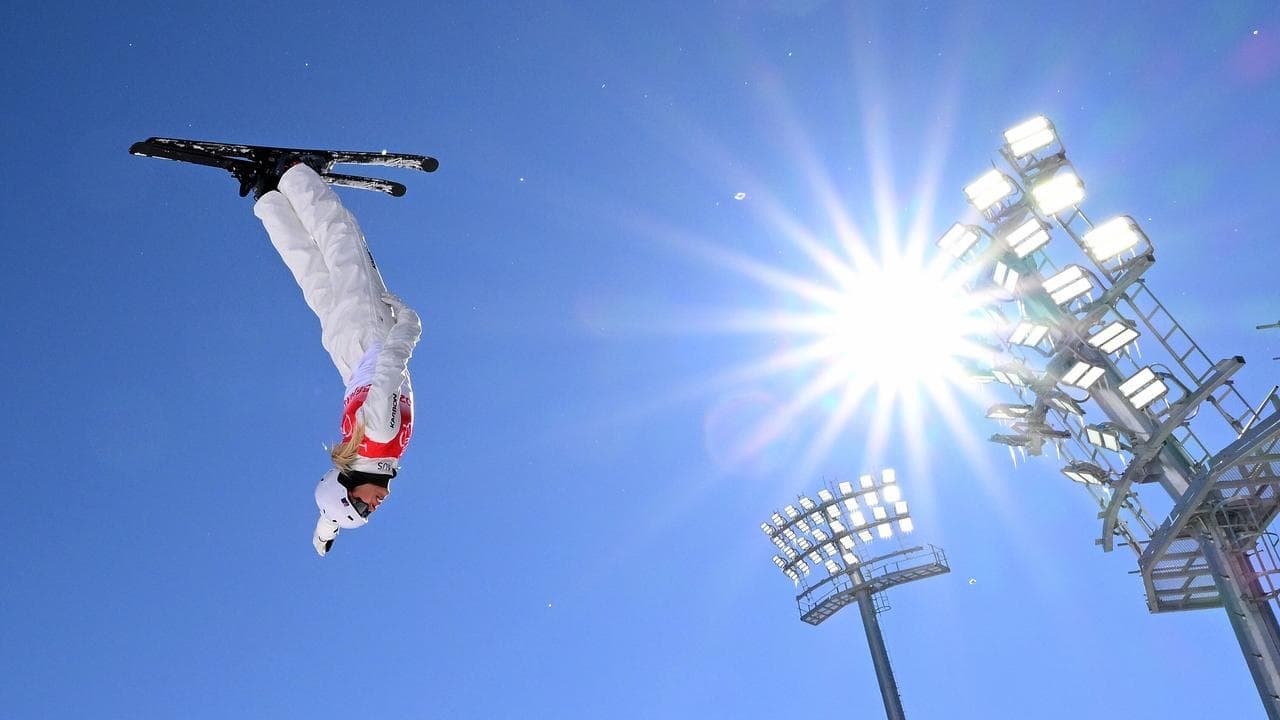WHAT WAS CLAIMED
Official data shows tropical cyclone intensity is decreasing in Australia.
OUR VERDICT
False. The data shows cyclone intensity has been variable and research suggests it will increase.
AAP FACTCHECK - As Australia continues to count the cost of ex-Tropical Cyclone Alfred, false claims about cyclone intensity decreasing are spreading online.
The Bureau of Meteorology says the graph being used to push the claims doesn't indicate any trend in intensity and experts say there's a lack of data for the Australian region.
However, on a global level, papers and studies predict that cyclones will intensify due to human-induced climate change.
The claim about the trend in intensity is in Facebook posts featuring a Bureau of Meteorology graph tracking cyclone numbers from 1970, titled "Australian region tropical cyclones".
"Given the official data back to 1970, both the number and intensity of tropical cyclones shows steady decline, so far," a post caption said.

When AAP FactCheck asked for evidence to support the claim, the Facebook user cited an article from the CSIRO.
The article, however, states that "there is a projected increase in peak intensity, on average."
"We also expect to see an increase in the proportion of tropical cyclones that reach the more intense categories (category 4 or 5)," the article says.
The severity of a cyclone is based on wind speed, but experts say "intensity" takes into account the wider impact of the storm, including factors such as rainfall, flooding and storm surges.
The bureau says while the graph shows tropical cyclones have become slightly less frequent since 1982, it does not show they're becoming less intense.
The proportion of systems that are severe has been variable, with periods of lower and higher frequency, a spokesperson told AAP FactCheck.
It is also more difficult to measure trends in intensity, the spokesperson said, due to "uncertainties in estimating the intensity of individual cyclones and the relatively small number of intense cyclones".
Climate projections indicate human-induced climate change will intensify future cyclones, they said.
"The intensity of rainfall associated with tropical cyclones is also expected to increase, while higher sea levels will amplify the impact of storm surges, for both tropical cyclones and east coast lows," the bureau spokesperson said.

Atmospheric scientists also say studies indicate cyclone intensity is likely increasing due to the impact of climate change.
Liz Ritchie, a tropical cyclone expert at the Australian Research Council's Centre of Excellence for Weather of the 21st Century, says decreasing frequency doesn't necessarily mean falling intensity.
She says a 2019 review indicates an increase in the proportion of category 4 and 5 cyclones in the Australian region from 1980 to 2010 (page 8).
The paper also notes that the number of tropical cyclone days has risen slightly over that period, Dr Ritchie says.
Even if the number of tropical cyclones falls, she says, if the duration of those storms increases, they will have a bigger impact.
She says a 2020 data review in the Bulletin of the American Meteorological Society suggests a possible five per cent increase in cyclone intensity worldwide for a two-degree rise in global temperature.
The Intergovernmental Panel on Climate Change's Sixth Assessment Report (Chapter 11, Section 7.1.2) suggests there "may be a slight increase in intensity" in the South Pacific and South Indian oceans, Dr Ritchie says.

She said all indications were that the globally averaged potential intensity of cyclones will increase under increased greenhouse gas emissions.
"But there is no separate analysis for the Australian region and few studies have looked separately at the Australian region," Dr Ritchie told AAP FactCheck.
The bureau said projections indicate the intensity of rainfall associated with cyclones will increase, and rising sea levels will worsen the impact of storm surges.
Kerry Emanuel, an atmospheric scientist at the Massachusetts Institute of Technology, says cyclone intensity was expected to rise in most regions globally.
Professor Emanuel cited the same 2020 data review referenced by Prof Ritchie, as well as a 2019 data review published by the American Meteorological Society.
Future cyclones are also expected to produce more rain, he said, which is significant because flooding is the most lethal and costly threat associated with tropical cyclones.
"In short, we expect the intensity of tropical cyclones to rise in most places, and there is now observational evidence that this is happening," Prof Emanuel told AAP FactCheck.
AAP FactCheck is an accredited member of the International Fact-Checking Network. To keep up with our latest fact checks, follow us on Facebook, Instagram, Threads, X, BlueSky, TikTok and YouTube.












